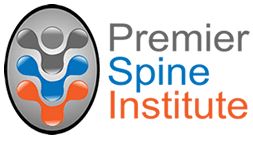An estimated 50 million American adults struggle with chronic pain. So, whether your pain is chronic or acute, it’s good to know which remedies work and which medications you can access without a prescription.
Here, Dr. Bonaventure Ngu, our expert at Premier Spine Institute, identifies five of the most effective pain medications you can purchase over the counter.
1. Acetaminophen
You may know acetaminophen as Tylenol® — a painkiller used for aches and pain caused by arthritis. It’s also recommended for headaches and fevers. It has few side effects, but it doesn’t help with pain associated with inflammation.
You shouldn’t take acetaminophen if you have liver disease or consume alcohol regularly.
2. Aspirin
Aspirin can relieve inflammation and mild pain in various body parts by blocking prostaglandins, a group of lipids that help heal tissues damaged by infections and injuries. They increase inflammation and help create blood clots, but they also cause pain.
You should avoid aspirin if you have a blood clotting disorder or if you suffer from gout.
3. Diclofenac topical solution
You can find diclofenac in a low-concentration gel form at your local drugstore. It’s good at relieving arthritis pain.
Much like aspirin, diclofenac blocks the production of prostaglandins. Pregnant women shouldn’t use topical diclofenac, as it can harm the fetus.
4. Ibuprofen
Ibuprofen — brand names Advil® and Motrin® — combats inflammation-related pain and fever. However, you should avoid it if you have kidney disease or impaired kidney function. Ibuprofen is the second strongest painkiller on our list and the most potent painkiller available over the counter is naproxen.
5. Naproxen
Naproxen (brand name Aleve®), another medication that stops prostaglandin production, addresses pain and inflammation. However, it may not be suitable if you suffer from a blood clotting disorder or drink alcohol regularly.
When over-the-counter medication isn’t enough to manage pain
Dr. Ngu specializes in treating pain in the back, neck, shoulder, whether it’s caused by pinched nerves, herniated discs, or other conditions. Depending on the cause and the specifics of your condition, he may recommend antidepressants, corticosteroids, or anticonvulsants to manage pain and reduce inflammation.
He may also recommend stem cell therapy, a treatment that gets to the root of the pain by rebuilding damaged tissues. Dr. Ngu extracts undifferentiated stem cells from your bone marrow. These stem cells can transform themselves into any type of cell in the body. He then injects them into painful areas to rebuild the damaged tissues.
Dr. Ngu offers stem cell therapy for the treatment of degenerative diseases of the spine, overuse, and injuries.
To find out what’s causing your pain and which treatment is best, contact us to schedule an appointment and get expert advice on managing your pain.
